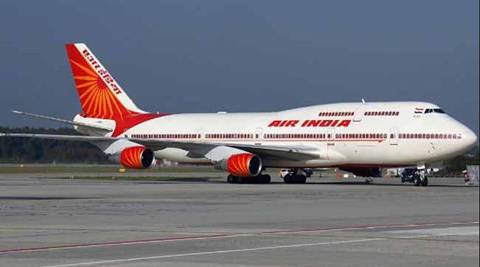Opinion Loopholes in Air India’s rosy turnaround story, CAG report says financial support to Maharaja may need reassessment
The report said that Air India underreported its operational losses and that may force the government to reassess the financial support to Air India and that may require more taxpayers’ money.
 Representational image, AI-171 suffered a bird hit while it was on its way to London from Ahmedabad yesterday
Representational image, AI-171 suffered a bird hit while it was on its way to London from Ahmedabad yesterday  (File Photo)
(File Photo)
Air India’s turnaround was one of the biggest achievement stories mentioned by Prime Minister Narendra Modi during his Independence Day speech. But, a recent report tabled in parliament by the Comptroller and Auditor General (CAG) seesm to have changed the narrative for the the Maharaja. The report said that Air India underreported its operational losses and that may force the government to reassess the financial support to Air India and that may require more taxpayers’ money. The airline, which is on a bailout package, may put extra strain on the exchequer.
PM Modi had announced from the ramparts of the Red Ford last year on independence day that Air India had seen operational profits for the first time in over a decade and that the profits would soon increase. Though the report denied any fudging of numbers, the statutory auditor and CAG have found understatements due to accounting loopholes.
The government abstained from privatising the carrier under the current regime, despite strong demands, to revive the PSU. It was said that PM Modi and Civil Aviation Minister Ashok Gajapathi Raju was keen to revive the Maharaja and they had enforced several operational changes to remove inefficiencies in day-to-day functioning. The CAG’s performance audit report clearly shows that there are fundamental flaws that need to be addressed.
In 2012, the Congress-led UPA government had approved a ₹42,182 crore equity infusion spread across a 20-year time period. This was to be done under a financial restructuring plan.
According to PTI, V K Kurien, Director General at CAG, said Air India under reported losses in the last fiscal.
“Since we have separately completed the audit of AI’s standalone financial statement for 2015-16, this Rs 105 crore (of operating profit) does not represent the actual…,” he said.
There have been questions around the carriers viability as government claims operational profits. Disinvestment may be a stronger argued option now.
The CAG released a press note later which spoke about the carrier’s operating performance measured as Earnings before interest, tax, depreciation and amortization (EBITDA).
Speaking about the understatement of losses, the official note said: “Though AI reported a positive EBITDA of Rs 166 crore (April-December 2014) from a negative Rs 191 crore (April-December 2013), both the statutory auditor and the CAG had expressed qualified opinion on AI’s accounts for all the three years (2012-13 to 2014-15) pointing out significant understatement of losses in (its) financial statements. The understatement of losses were Rs 1,455.8 crore (2012-13), Rs 2,966.66 crore (2013-14) and Rs 1,992.77 crore (2014-15). Considering (these)…, the EBITDA of AI would be negative (up to March 2015,).”
The FRP was also supposed to benefit the finances to the carrier but the CAG report said its short term loans accrued by the carrier amounting to ₹14,550.88 crore on March 31, 2016 eroded FRP’s benefits. The report said “Audit noticed that short term loans of the company at Rs 14,550.88 crore as on March 31, 2016, recorded an increase of 0.93% in 2015-16 over the loan as on March 31, 2015, primarily on account of lower revenue generation by the company. The high volume of short term loans had largely eroded the benefits of financial restructuring carried out under the FRP.”






